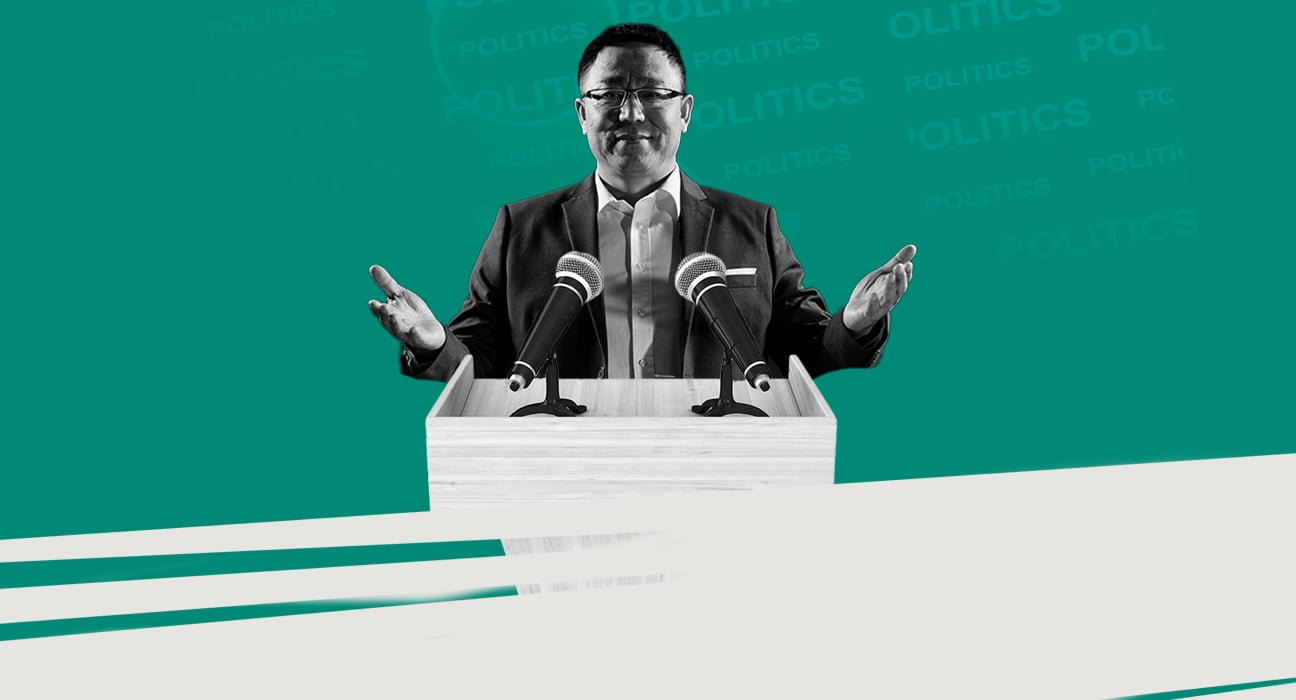Considering political processes from a psychological point of view is the center of the multidisciplinary scientific field of political psychology. Political psychology, in its broadest sense, thinks about how members of politically organized communities think and act politically. Political psychology research looks at how individuals carry on politically both individually (e.g., decision-making) and collectively (e.g., collective activity). It moreover looks at how the general public and political elites carry on (e.g., public opinion, psychology of authority), and it interfaces to both formal (e.g., voting) and informal (e.g., community association) processes of political interest.
Rise of Political Psychology
Political psychology has been picking up traction in recent years as a field of study. Concurring to William McGuire (1993), the advanced evolution of political psychology can be characterized as… progressing through three diverse periods:
1st Era (1940s-1950s)
- Following World War II, there was a developing intrigued in political influence and propaganda, which led to the creation of new public polling strategies. (Jost) Concurring to Sidanius and Pratto (2004); Sullivan, Rahn, and Rudolgh (2002) found that researchers… amid this time, the dominant approach was basically psychoanalytic, whether it was explicitly expressed or implied, and the most external influences came from psychiatrists and anthropologists.
- Lasswell, who later picked up recognition as a pioneer within the field of political psychology, published compelling books like Psychopathology and Politics.
- The book Power and Personality was distributed in 1948, whereas 1930 stamped the starting of a new period.
- Amid this time, remarkable contributions from researchers such as John Duckitt, Theodor Adorno, Bob Altemeyer and their colleagues who dove into the authoritarian personality are seen.
- Moreover, Henry Murray made noteworthy strides in the study of personality and leadership.
- The research of Herbert McClosky on political conservatism and personality, Pitirim Sorokin’s examination of Western culture, and David Riesman’s works on culture and politics.
Also Read: Impact of Political Tension in India and Canada on Students
2nd Era (1960s-1970s)
- The center of psychological and political behaviorists has moved towards quantification and measurement over the years.
- Numerous scholars rejected psychoanalytic theory due to their emphasis on academic rigor. Deutsch and Kinnvall (2002) contend for a shift towards a behaviorist approach in orientation.
- Within the 1960s and 1970s, the field of political psychology entered a new time as numerous scholastic psychologists and political scientists turned their consideration to investigating belief systems, attitudes, and voting behavior. This shift marked the beginning of the second stage in political psychology’s advancement.
- During this time, the field was generally affected by “rational actor” models, which emphasized the significance of cost-benefit examination in political behavior and decision-making.
- Sociology and communication theorists moreover had a noteworthy impact on the field during this period.
- In this period, the works of Paul Lazarsfeld and his colleagues are symbolic of psycho-political research.
3rd Era (1980s-1990s)
- Critical improvements in various industries are watched at this time.
- Amid the 1980s and 1990s, political psychology entered its third era, centering on the orderly examination of human cognition and information processing.
- This move was generally affected by the victory of the “cognitive science revolution” (Sullivan et al., 2002). Since the 1980s particularly, and retrieve information. This focus on cognitive processes has driven to a more profound understanding of human memory and decision-making.
- Information is accumulated from their political environment to keep in mind and utilize. It was at that moment when the political scene shifted.
- Psychologists have started to voice their criticism of the broadly acknowledged rational choice models in political behavior and international relations. They are presently incorporating the impacts of biases, heuristics, emotions, and symbolic reactions into the analysis of political decision-making.
- Political psychologists center on both emotions and reasoning, and their collaborations with cognitive scientists and decision theorists, have brought about the advancement of promising avenues for investigation that accommodate psychology-based and rational-choice models of decision-making.
Also Read: Selling False Dreams: The Dark Side of Aspirational Marketing
4th Era (From 1990s)
In their book Political Psychology: Key Reading, Jost and Sidanius (2004) consider potential speculation approximately the fourth era, beginning in the 1990s. While the initial three periods of political psychology primarily concentrated on individual subjects such as personality, attitudes, and ideologies, the larger part of investigation in the fourth era is presently centered on interpersonal processes, especially intergroup relations.
Political Attitudes and Beliefs:
Values and attitudes are not as it were important in themselves, but also because they give knowledge into people’s likely behavior, which incorporates a noteworthy and direct effect on political life. To truly comprehend people’s activities and inspirations, it is pivotal to have an understanding of their thoughts. For instance, simply knowing that someone didn’t vote in an election isn’t adequate. It’s important to get it if their choice was driven by apathy, alienation, or satisfaction.
Voting Behaviour:
The way people vote or select not to vote in local, territorial, or national elections is considered as their voting behavior. This behavior leads to either backing a particular political candidate/party or choosing not to take part in the voting process. Voter behavior can be associated with the perceived impact on their quality of life. When looking at voting behavior, it’s essential to recognize that choosing to vote for a specific party is a deliberate choice, not an immediate response to an exterior influence.
The voter’s social circle, which consolidates family, companions, peers, co-workers, campaign workers, and neighbors, incorporates a major impact on voting behavior by either empowering or debilitating it. In extension to immediate influences, reinforcement contingencies can in addition be gathered from more remote social sources. It is basic for the person voter to consider the current “moods” or patterns of public opinion through the mass media. These climates propose the probability of tolerating social approval.
Leadership and Power:
The practice of politics is a pivotal viewpoint of compelling leadership. At its core, politics is the interest of leadership roles inside society. Power is a necessary component of politics and leadership, and it is anticipated that leaders will illustrate moral behavior and maintain high ethical guidelines while using their power. As such, politics can be seen as a shape of social authority, and leadership can be seen as a political endeavor. A genuine leader epitomizes the qualities of a skilled politician.
Also Read: The Psychology Behind Fake News
Political Communication:
Political communication alludes to the formal trade of information, messages, and symbols among institutions, elected officials, social bunches, the media, and citizens, which has suggestions for the power flow within society (McLeod, Kosicki, and McLeod, 2002).
Genuinely, there’s an unfortunate angle of the field known as the “dismal science”: No matter how much political campaigns or the media framework alter, it appears that power imbalances, ideological divides, and public alienation stay unaltered.
Political communication frequently creates an uneven playing field for encouraging social change in society. In even the liveliest democracies, government authorities and persuasive intrigued groups have the ability to manipulate news and public focus on important political things, shaping them in their support.
Group Identity and Polarization:
Group polarization is when individuals’ attitudes change because of the group’s influence, and choice shift is the result of that state of mind change. It measures the difference between the group members’ initial attitudes and the final group choice. As the progressive integration of truly disadvantaged groups into public life faces backfire, political polarization is on the rise (Lisnek et al., 2022; Mudde, 2019). In the future, it may be accommodating to distinguish between political clashes caused by polarization and clashes arising from marginalized bunches resisting conservative backfire.
Understanding these distinctions is imperative as the causes, results, and necessary interventions will vary. The victory of contact experiences is hindered by the lack of acknowledgment of group disparities or the presence of high levels of Social Dominance Orientation (SDO) and Right-wing Authoritarianism (RWA) in dominant groups, as noted by Hässler et al. (2021). Exploring cognitive liberalization, which has shown that contact decreases RDA, SDO, and, in turn, prejudice (Hodson et al., 2018), can be an important course for addressing these issues.
Political Decision Making
A politician will always select a solution that’s broadly acknowledged because it maximizes overall support. Besides, this can be the sole approach that addresses all the values considered in a decision, regardless of what they may be. Assessed based on their inherent value or the importance of the interface they represent, a transcendent elective is one that meets both viable needs and is considered appropriate or satisfactory.













Leave feedback about this